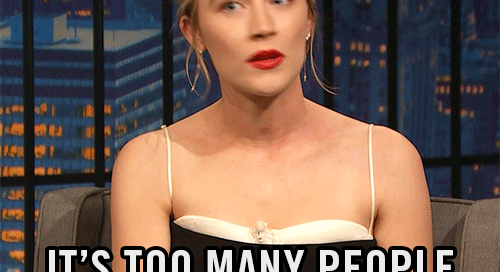On March 13, 2020, I had two errands to run: voting in the Democratic primary, and picking up enough groceries to last at least a couple of weeks, because I knew the city would soon go into lockdown. It hadn’t been announced yet, but I’d paid attention to Italy and Seattle, was paying attention to New York. Our St. Patrick’s Day Parade had already been canceled, which was basically confirmation that the apocalypse had arrived in Chicago. Grocery shelves denuded of toilet paper and dried beans agreed.
At my early voting location, poll workers were wearing gloves, doling out hand sanitizer, and valiantly trying to keep us all a few feet apart from each other. As I stood in line to place my ballot in the machine, the person in front of me hesitated to take her “I voted” wristband and quietly indicated that she’d like a different one. I saw her problem immediately—the worker offering it to her wasn’t wearing gloves. But that worker, being a person who didn’t think it necessary to wear gloves while dealing with strangers on March 13, 2020, didn’t get it. She picked up a new sheet of wristbands, still ungloved, and held out a new one. The woman in front of me took it, unable to bring herself to say what she actually wanted.
That was the moment I realized that self-protection during a pandemic was inevitably going to involve confronting people. Saying things that feel rude. Pointing out the obvious to people who refuse to see it. Some of my least favorite things to do in the world, except on Twitter.
I didn’t say anything, either. I took my own “I voted” wristband from the worker’s naked hand, telling myself the chances of this person already having the virus were so slim. Which they were, then. At that point, the problem wasn’t that Covid-19 was everywhere, but that it could be anywhere. It was a vague terroristic threat, not yet a field of landmines outside every door.
I carried an Ikea bag into Jewel to do my shopping, so I wouldn’t have to touch a cart. The main focus then was still on fomite transmission, although I remember being incredibly anxious about other people breathing near me. As I stood in line to pay, with other people wantonly bumping and crowding me as though nothing had changed, I realized that clearly posted rules would have no effect on a certain percentage of the population. That was when I resolved not to go out again until it was safe.
On March 13, 2020, I still believed that the impending lockdown would “flatten the curve,” and we’d be back to normal in a matter of weeks. I wasn’t sure how many weeks—two? four? eight?—but I reasoned that if nearly everyone stayed home during that period, the virus would have to die out. Things I didn’t factor in: the incredible contagiousness of the virus, the emerging politicization of the virus, the general unwillingness of Americans to do anything for the common good.
I did factor in the cruelty and uselessness of the federal government, as one always had to between January 2017 and January 2021, but I thought our mayor and governor were doing a good job of taking the threat seriously. I did not think about our bordering states—Iowa, Indiana, Wisconsin, Kentucky, Missouri—or two international airports in my city alone, including one of the world’s busiest. I did not think about all the people in Illinois, of every political stripe, who would see all efforts to contain the pandemic as attacks on their personal liberty. I still believed the virus could be reasoned with.
Within weeks, I realized we’d be home for at least a year, probably closer to two.
All of this came back to me as I read this extraordinary tick-tock of the lead-up to that first lockdown in Chicago. It’s fascinating to see what the people in charge were thinking then, knowing what we know now. And it’s infuriating all over again to learn how little the federal government did to help when this was the situation:
CAPRARA
Governor J.B. Pritzker’s chief of staffIn March, when the craziest stuff was going on, I walked into the governor’s office. He has a whiteboard where we had written down our priorities for the year — things that we were going to look at to make sure we were advancing our policy goals and everything else. He and I were sitting there looking at this list of things that we had wanted to get done. I erased everything on the board and wrote: “No. 1: Survive,” “No. 2: Pass the budget in May,” and “No. 3: Make sure democracy continues.”
PRITZKER
Governor of IllinoisI’ve not erased it since that day. The other thing that’s on the whiteboard are little boxes that say “Choice A: Lots of people die,” “Choice B: Less people die.”
Happy panniversary, everybody.
Can’t wait to see you when we’re vaccinated.
Love,
Kate





